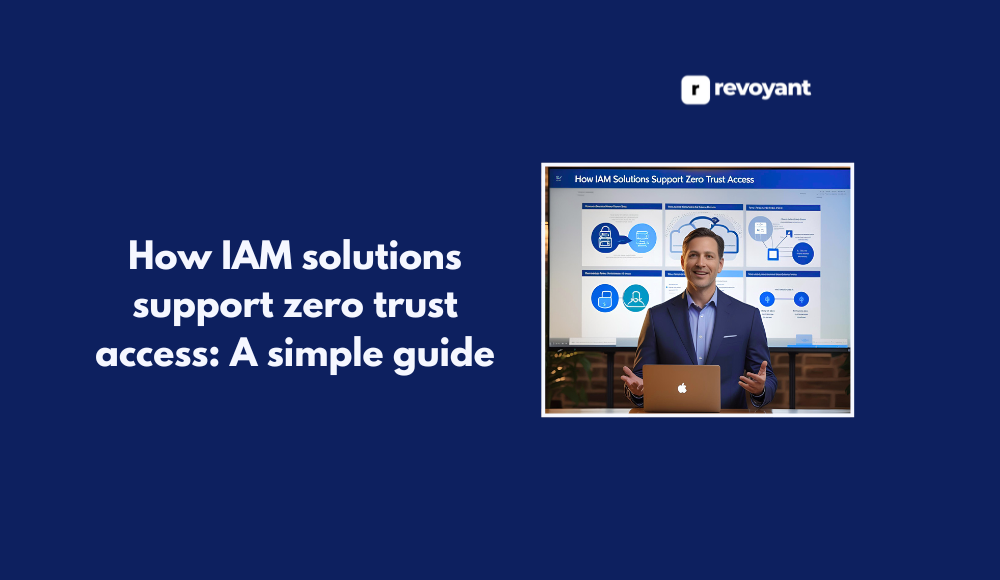Have you ever worried about someone posting false things about you online or in tech forums? It’s a real concern for many people. Defamation and libel can be confusing, but knowing the facts helps.
Libel happens when someone publishes a false statement in writing or on the internet.
This blog will break down what defamation means and how libel fits into it. You’ll also see the differences between them, with easy examples from news sites and online reviews. Keep reading to learn how to stay safe from legal trouble over your words!
Key Takeaways
- Defamation is when someone says or writes a false, harmful claim about another person. Libel is a type of defamation in writing or online.
- To win a defamation case, the victim must prove the statement was false and hurt their reputation. Public figures have to also show actual malice.
- Truth is a strong defense against defamation. Opinions are usually protected because they can’t be proved true or false.
- Sharing false statements on social media or review sites can lead to legal trouble for libel.
- Courts look at whether harmful words were shared with others and if they were presented as facts, not opinions.
Key Elements of Defamation
Defamation starts with someone making a harmful claim about another person, either in speech or writing, that others hear or read. Courts often look at whether the statement damaged a person’s good name or standing in their community.
False Statements
A false statement is a key part of any defamation claim. To win a defamation suit, the plaintiff must prove that the defendant made a statement that was not true. In libel law, this means writing something about someone that can be proven untrue.
For example, an online review claiming someone committed theft, when they did not, counts as libel and may lead to damages.
In American law since 1964’s New York Times Co. v. Sullivan case, public figures or public officials must show actual malice—meaning the person knew the information was false or had reckless disregard for its truth.
Both slander and libel need proof that the statement harmed someone’s reputation and was presented as fact to others. Harm caused by these statements often leads people to sue for money or other relief in court due to injury done by false information.
Next comes discussing how such harm affects reputation and what courts look for in damage claims.
Harm to Reputation
False statements often lead straight to real harm in defamation cases. In tech, a libelous review that claims my software steals user data can easily wreck my reputation. People might read these lies online, believe them as facts, and decide not to use or buy from me.
Libel is written, so it sticks around—search engines and forums can keep spreading the defamatory statement for years.
Damage goes beyond lost sales; I might lose business partners or investors too. Big companies like Apple have faced false claims that dragged their names down for months before courts cleared them.
The law treats defamation of character seriously because even a single written lie may cost jobs, deals, trust in safety systems—or public knowledge itself if news outlets spread the story first.
This is why the difference between slander and libel matters so much under defamation law: one careless post could trigger lawsuits and lasting harm far outside of courtrooms, especially part of an internet defamation case or commercial law dispute involving management teams.
Publication to a Third Party
After harm to reputation, another key part of defamation is publication to a third party. For a statement to count as libel or slander in the United States, at least one other person besides me and the subject must see or hear it.
This rule keeps private conversations from turning into defamation lawsuits.
Take an online review for example. If I post a false statement about someone’s business on Yelp, that counts as publication. Anyone who reads my words becomes the third party needed for a libel claim or slander lawsuit.
Courts like the Supreme Court of the United States have ruled that even digital messages shared in chatrooms may lead to liability for defamation if others can read them. Making any false statements of fact public—whether by text, email, tweet, blog post, or Slack message—fits this element under state defamation laws and common law.
I always need proof that someone else saw or heard what was said before starting any case for defamation per se or filing a tort action involving libel and slander claims under criminal law statutes like those from English law and U.S. codes such as those shaped by cases since 1964 like New York Times v Sullivan.
Defamation vs. Libel: Core Differences
Defamation covers both spoken and written statements, but libel is special because it deals with words that are printed or shown online. Courts often see libel cases as more serious since harmful words on paper or screens can spread fast and stay around much longer than if someone just says them out loud.
Written vs. Spoken Defamation
Libel is a type of defamation that happens in writing or print. For example, if someone posts a false review online saying a software engineer cheats clients, this counts as libel.
Newspapers and blogs can also be liable for defamation if they publish statements proven untrue or reckless about another person or company. I see many tech cases where one bad blog post causes real harm to someone’s reputation.
Slander refers to spoken defamation, like hurtful rumors spread during an office meeting or at a conference. These damaging words can ruin jobs and reputations fast. Courts treat written statements, such as email blasts or tweets, more seriously than spoken words because digital content lasts longer and can reach millions quickly.
Libel claims often come up in social media disputes in tech fields now; the next part looks at everyday examples of libel you might recognize from your own work life.
Examples of Libel in Everyday Life
A tech blogger writes a review about a new smartphone, claiming that the device is full of spyware and steals user data, without any proof. This kind of false statement can defame the company and hurt its sales.
I see cases like this all the time in online forums or on social platforms such as Twitter or Reddit, where someone posts screenshots with fake chat logs to show another user did something illegal.
False claims in emails at work may spread rumors about an employee’s actions, damaging their reputation.
In 1964, New York Times v. Sullivan showed how public officials need to prove actual malice if they sue for defamation over written statements. Online business reviews on sites like Yelp also often cross into libel if people post untrue facts rather than opinions; saying “this shop owner stole from me” counts as libel if it is not true.
Even reposting an article with false information can cause harm under today’s law regarding types of defamation, including torts of libel and criminal libel statutes in some states.
The digital world made it easy to publish written statements fast so anyone should think before posting accusations that are either proven true or false.
Legal Considerations in Defamation Cases
Courts look at key facts, such as who made the false statement and how it was shared. I pay close attention to speech laws like the First Amendment, which protect some types of comments but not all.
Burden of Proof
In defamation cases, the person claiming harm must prove that a false statement of fact caused damage. If I file a defamation action about online libel, I need to show the untrue written words hurt my reputation and were shared with others.
The law makes me, as the plaintiff alleging defamation, provide strong evidence. A lawyer will look for things like clear proof the statement is both false and harmful.
For public officials or public figures, it can get tougher. They have to show “actual malice.” This means proving someone made a false claim on purpose or showed reckless disregard for the truth.
In private individual cases involving libel or slander, it’s enough to prove negligence—someone did not take proper care before making a damaging claim. Courts in places like New York used this standard in big cases since 1964, such as New York Times v.
Sullivan. So now with online defamation or reviews on tech platforms becoming common under United States law, knowing who carries this burden of proof stays key in protecting from libel charges or defending free speech under the First Amendment to the United States Constitution.
Public Figures vs. Private Individuals
Laws treat public officials and public figures differently from private individuals in defamation cases. Someone like a celebrity or politician must show actual malice to win a defamation claim.
That means the person making the false statement knew it was untrue or acted with reckless disregard of whether it was true or not. The 1964 case New York Times v. Sullivan set this higher bar for public figures.
Private individuals have more protection under the tort of defamation. I notice they just need to prove that libel or slander caused harm due to negligence, not actual malice. For example, if someone posts a false review about me online and I am not famous, I only need to show how it damaged my reputation or work life.
Libel is written; slander refers to oral comments. This distinction between libel and slander matters most in cases where technology spreads information fast across digital platforms, news sites, and social networks—areas often covered by law of slander and categories of defamation today.
Common Defenses Against Defamation Claims
People use different reasons to defend against defamation. Some say what they wrote or said is true, and others argue it is only their viewpoint, not a statement of fact.
Truth as a Defense
Truth is an absolute defense against a defamation or libel claim. If what I say or write is true, then the law protects me, even if that truth harms someone’s reputation. The court checks facts closely in these cases.
For example, online reviews about tech companies and software must be accurate. Libel generally refers to false statements made in writing; actual proof of truth can protect someone from being accused of defamation.
I see this area of law stress that making a false statement causes real harm. Defenses to a defamation case often center on whether the statements are fact or fiction. Courts in both the United States and Singapore look for hard evidence to prove if something was true under acts like the Sedition Act (Singapore) or when handling seditious libel claims.
Now I’ll move into how opinions versus facts play a role as other defenses to defamation claims.
Opinion vs. Fact
Truth is not the only defense, I also need to show if a statement is an opinion or a fact. In defamation cases, like libel, courts check this difference with care. A fact is something I can prove true or false.
For example, “The Sedition Act of 1798 punished people who published false statements about government officials,” is a fact because historians can check documents to see if it happened.
An opinion cannot be proved right or wrong and does not count as libel under most laws. If someone claims in a tech review site that “I think this app looks ugly,” that’s usually just an opinion and protected speech in matters of public interest.
But if the reviewer instead says “This app steals user data,” then it becomes a factual claim; posting lies like these could mean defamation occurs online. Courts use tools such as case law and news reporting standards to decide if words are facts or just opinions, which helps keep people protected from libel while still allowing free speech on issues of public concern.
Conclusion
Knowing the differences between defamation and libel helps protect your words online. Libel is written, while defamation includes both spoken and written false statements. Harm can be serious, especially in tech jobs where a single review or post may hurt someone’s standing.
Laws guide us on what counts as fact or opinion, so thinking before posting matters a lot. I always pay attention to these rules when I share updates on social media platforms or add comments to blogs and news sites.
FAQs
1. What are the differences between defamation and libel?
Defamation is a false statement that harms someone’s reputation. It includes two kinds, slander and libel. Libel is a written form of defamation.
2. Can you explain what defamation caused means in matters of public concern?
In matters of public concern, defamation caused refers to damage done to a person’s reputation due to false statements made publicly about them.
3. How does crime or divorce relate to defamation?
Crime or divorce can be linked with defamation if false allegations are made during these proceedings which harm the reputation of an individual involved.
4. Is there any area where we need to be extra careful regarding Defamation?
Yes, when dealing with public figures or issues of public interest, more care needs to be taken as it often involves high stakes and legal complexities.




